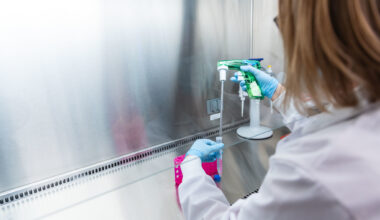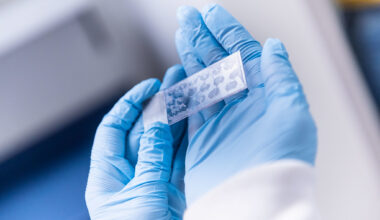ICORD (International Collaboration on Repair Discoveries)’s summer research program for Indigenous youth offers local Indigenous high school students 6-week paid internships in spinal cord injury, neuroscience and biomedical engineering research labs.
Since 2018, the program has provided students with mentorship and research opportunities at UBC in the hopes that this experience might inspire them to pursue the sciences and consider further studies or a career in neuroscience or biomedical engineering. This year, there are 13 students based in Vancouver and 4 students in Kelowna at UBC-Okanagan labs.
Thirteen students in the 2023 cohort toured the Djavad Mowafaghian Centre for Brain Health last week to learn about some of the cutting-edge and innovative neuroscience research being conducted in the labs at DMCBH.
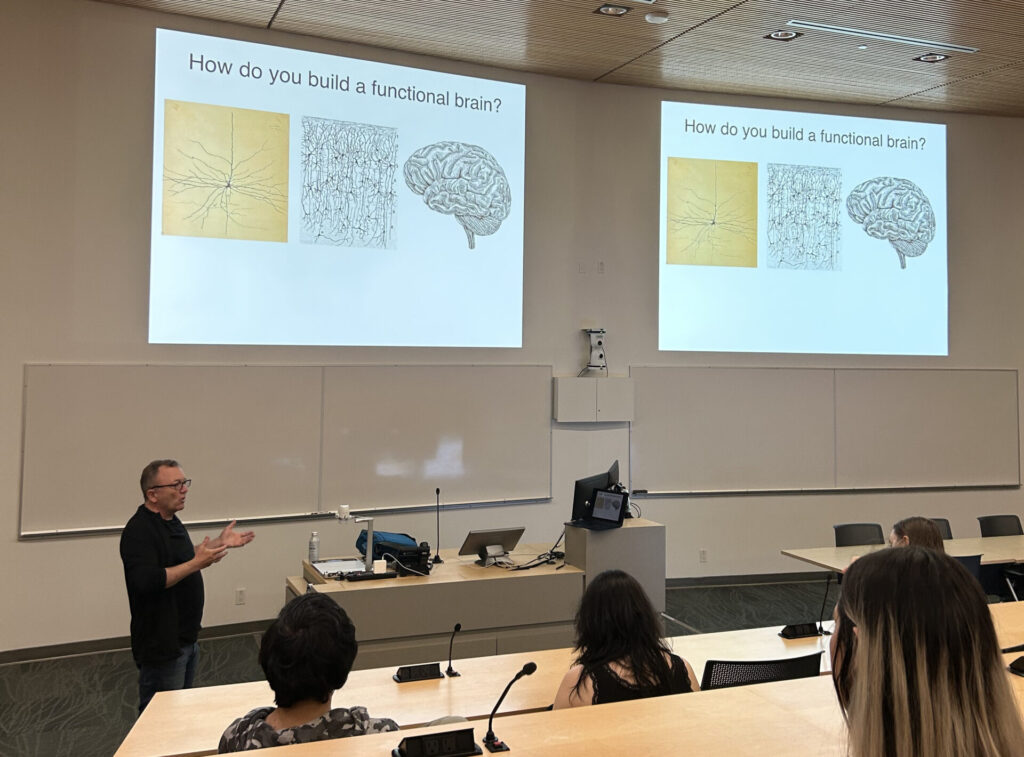
Dr. Kurt Haas speaking to the ICORD students.
The students started off the tour by listening to a presentation from Dr. Kurt Haas who shared with the students how research is conducted in his lab to investigate mechanisms underlying normal and abnormal neuronal development.
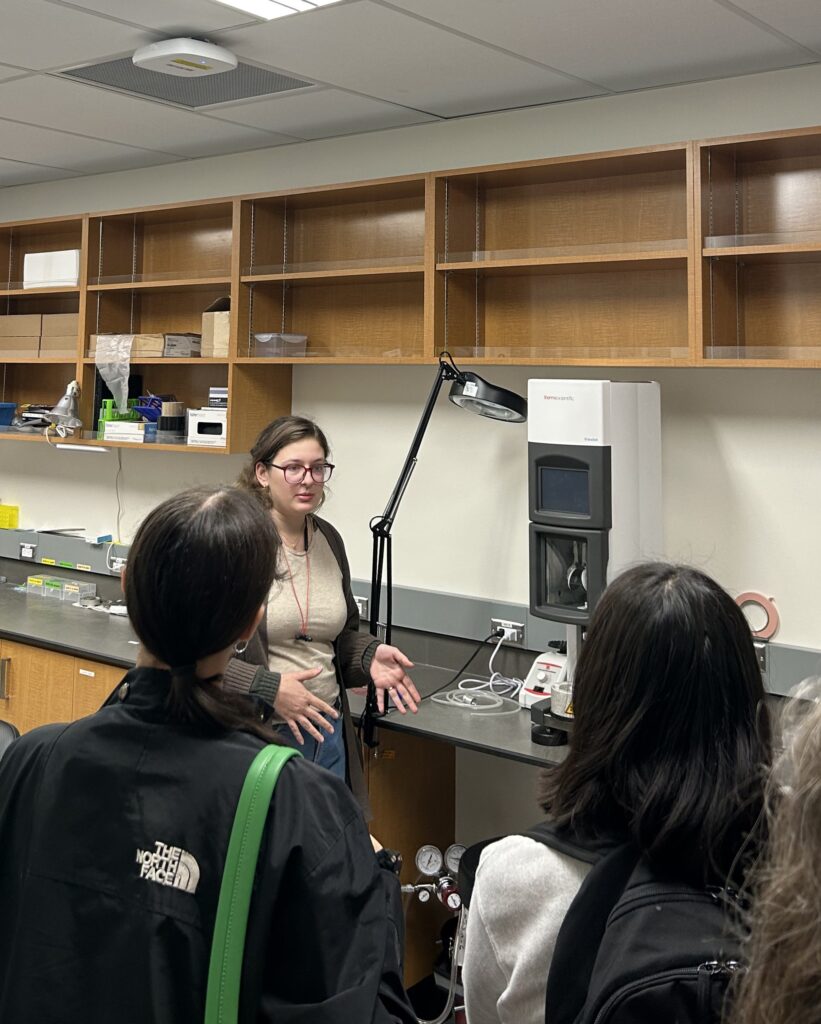
Research assistant Kate Tuttle, Dr. Sriram Subramaniam’s lab.
The students visited the Cryo-electron microscopy (Cryo-EM) and drug design lab of Dr. Sriram Subramaniam. Research assistant Kate Tuttle showed the students an overview of the cryo-EM process, including how grids are prepared and loaded into the microscope, and how grid images are collected and processed to get an atomic structure of the protein of interest.
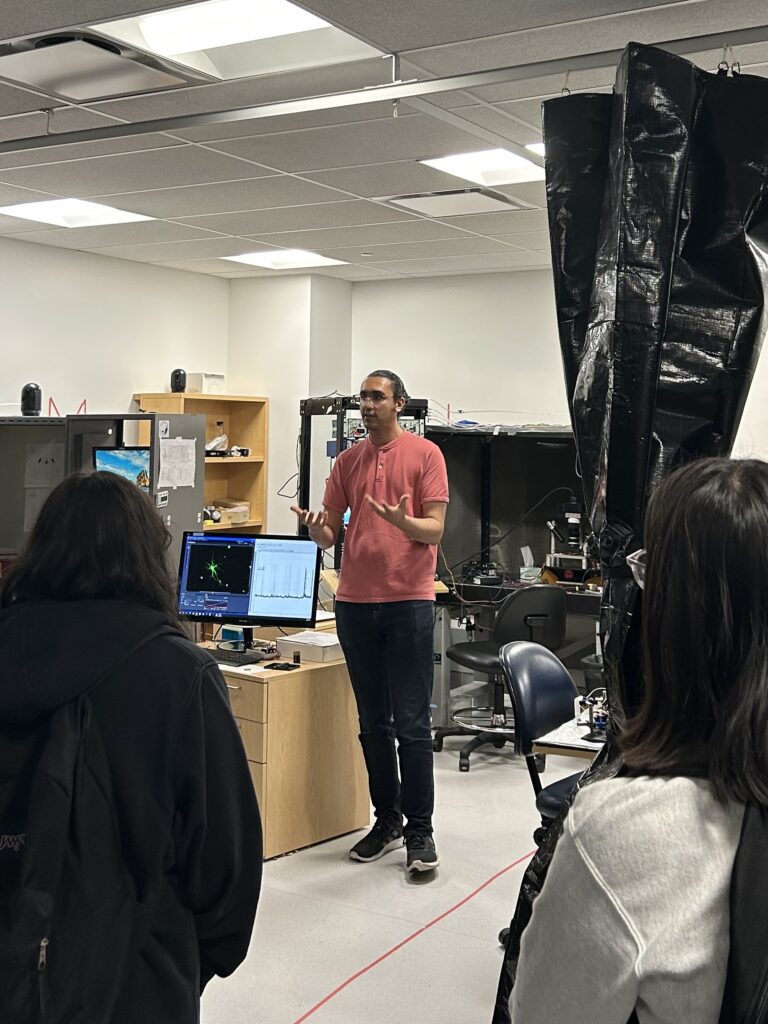
PhD candidate Daniel Ramandi, Dr. Lynn Raymond’s lab.
PhD candidate, Daniel Ramandi in Dr. Lynn Raymond‘s lab presented his project on Huntington Disease to the ICORD students. The students learned how Huntington Disease is investigated at a behavioural level, brain circuit level, and cellular/molecular level.
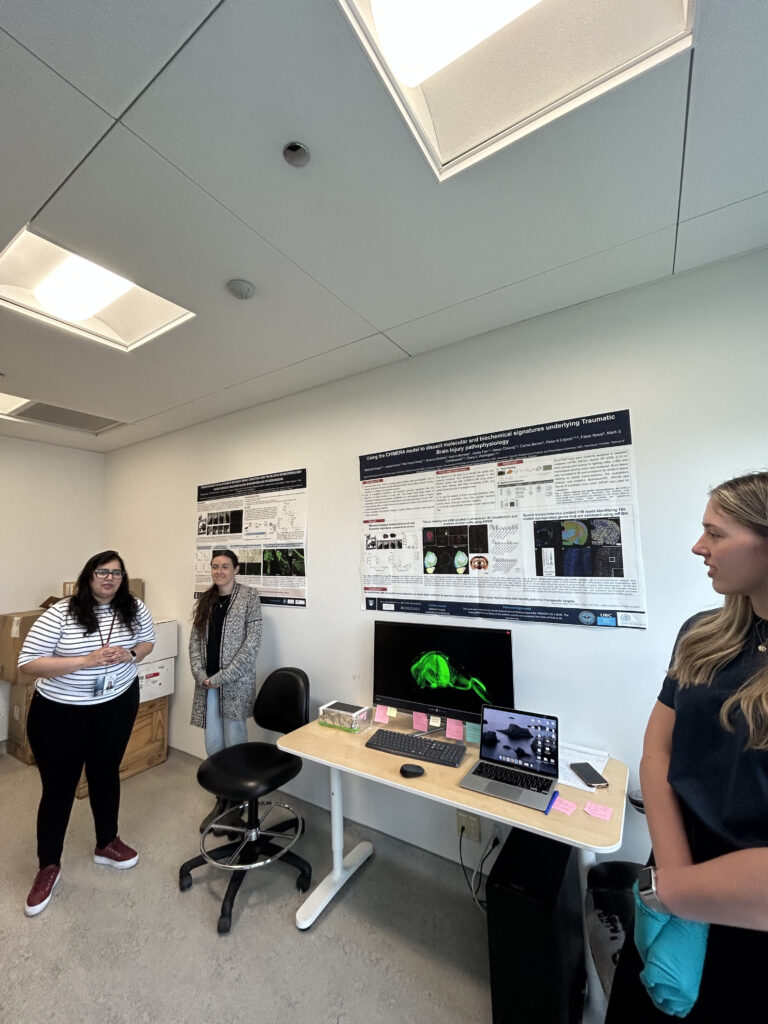
From left: Postdoctoral fellow Dr. Mehwish Anwer, research coordinator Megan Harper, and co-op student Mckenna Stuart, Dr. Cheryl Wellington’s lab.
Members of Dr. Cheryl Wellington‘s lab shared their research on the development of imaging tools for whole brain mapping. Postdoctoral fellow Dr. Mehwish Anwer shared a 3D fly-through video of a transgenic mouse brain, co-op student Mckenna Stuart showed a real “transparent” mouse brain, and research coordinator Megan Harper shared her experience working as a staff member in a research laboratory.
